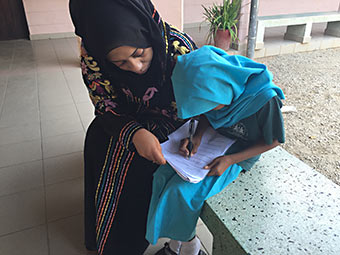Session 10/21
Page 3/7: Topic A: The lack of a secure base group when placed outside homeTopic A: The lack of a secure base when placed outside home
Children and youth in foster care often have a history of separation from their parents and may have experienced multiple losses before coming to you. They might have lived in several foster homes, with relatives, or in children’s homes, where caregivers changed frequently. They may also have witnessed family conflicts, such as divorce or custody battles. Without stable, long-term caregivers, they may develop insecure attachment behaviors, like avoidant, ambivalent, or disorganized patterns, as you learned in session 9.
When entering a new foster family, children might show aggressive, withdrawn, or inconsistent attachment behaviour. They may struggle to understand how to interact with others in the family, which can be upsetting for everyone, including the child who may feel rejected. It’s important for the foster family to carefully plan, discuss, and find new ways to help the child feel connected and learn appropriate behavior. With patience and effort, even children from difficult backgrounds can learn to manage daily interactions and develop healthy relationships. In time, they can grow and thrive with the right support. They can even end up as prime ministers if they receive patient help from foster parents and professionals.


In studies of young people who have grown up in institutions and/or foster families, they frequently describe feelings of low self-esteem, rejection, and hopelessness. Also, they have experienced that very few in the system talked to them about what really mattered: Their need to belong. In studies of young homeless people, most of them grew up in institutional or foster care. This sad development can in many cases be prevented in the foster family by working to make the child feel included and build up its social competencies.
Former Danish Prime Minister Anker Jørgensen’s parents died when he was five. He is the one in the picture. In his recommendation of Fairstart, he stated that his success in politics was due to the care from his aunt who became his foster mother. Also that the children’s home where he grew up later on in life had a strong social profile. This gave him the urge to take social responsibility, and find the courage necessary for making his career.

People who grew up in alternative placements and who have been successful in adulthood all describe four characteristics of their childhood caregivers:
- One or two particular caregivers had taken an interest in their life and allowed them to form an attachment to them. These individuals were tolerant and gave them time to develop slowly.
- They had a personal space of their own.
- They lived in a group (foster family or institution) where they learned the social skills that they hadn’t learned from their biological family.
- The group had good relations with the local network, making the child feel accepted in society.
